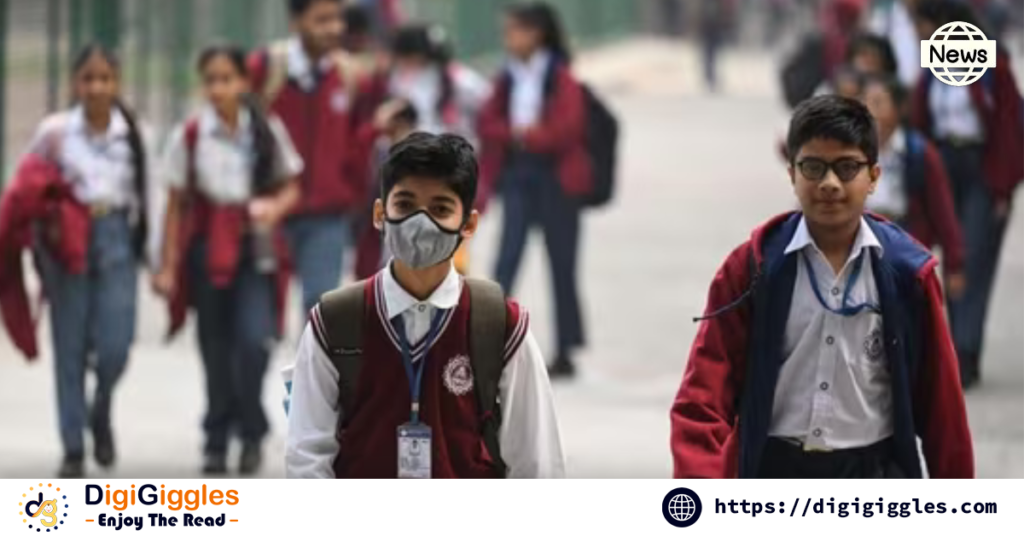
Delhi’s worsening air quality has pushed authorities to implement hybrid learning models in schools as residents struggle to breathe clean air. The capital city, often blanketed by smog during the winter months, recorded air quality levels in the “severe” category over the past week, prompting urgent measures to protect children and vulnerable groups.
Toxic Air Engulfs Delhi
The air quality index (AQI) in Delhi has consistently crossed the 400 mark, placing it in the hazardous “severe” zone. Thick layers of smog have enveloped the city, reducing visibility and intensifying health risks. According to experts, a combination of stubble burning in neighboring states, vehicular emissions, and unfavorable weather patterns has contributed to this alarming deterioration. Respiratory illnesses have surged in the last few days, with hospitals reporting an uptick in cases of asthma, bronchitis, and other pollution-related conditions. “Every breath feels heavy. It’s like we’re inhaling poison,” said a resident of South Delhi.
Schools Transition to Hybrid Learning
In response to the crisis, Delhi’s education department has directed schools to switch to a hybrid learning model. While some students attend classes online, others are allowed limited physical attendance, depending on the severity of local air pollution levels. This measure aims to minimize children’s exposure to the toxic air while ensuring continuity in education. Many schools have also started installing air purifiers in classrooms and encouraging parents to provide masks for children attending in-person classes. A school principal remarked, “Our priority is the health and safety of students. Hybrid learning is our way of adapting to this environmental challenge.”
Government’s Countermeasures
The Delhi government has reintroduced its Graded Response Action Plan (GRAP), which includes restrictions on construction activities, halting diesel generators, and enforcing bans on older vehicles. Authorities have also launched awareness campaigns urging citizens to carpool, use public transport, and refrain from bursting crackers during ongoing festivities. Delhi Chief Minister Arvind Kejriwal emphasized the importance of collective action, stating, “We need everyone’s cooperation to combat this pollution crisis. Measures are in place, but public participation is equally essential.”
Health Advisory Issued
Experts have advised residents to remain indoors as much as possible and use air purifiers and N95 masks for protection. Early morning walks and outdoor activities have been discouraged, particularly for children and the elderly. “This is not just an air quality crisis but a public health emergency,” warned a senior pulmonologist at AIIMS.
Hope for Change
As Delhi grapples with its annual pollution woes, the call for long-term solutions grows louder. Environmentalists have stressed the need for stricter enforcement of pollution control measures and better coordination between states to tackle stubble burning.For now, the hybrid learning model reflects a city adapting to its grim reality while hoping for cleaner skies ahead.